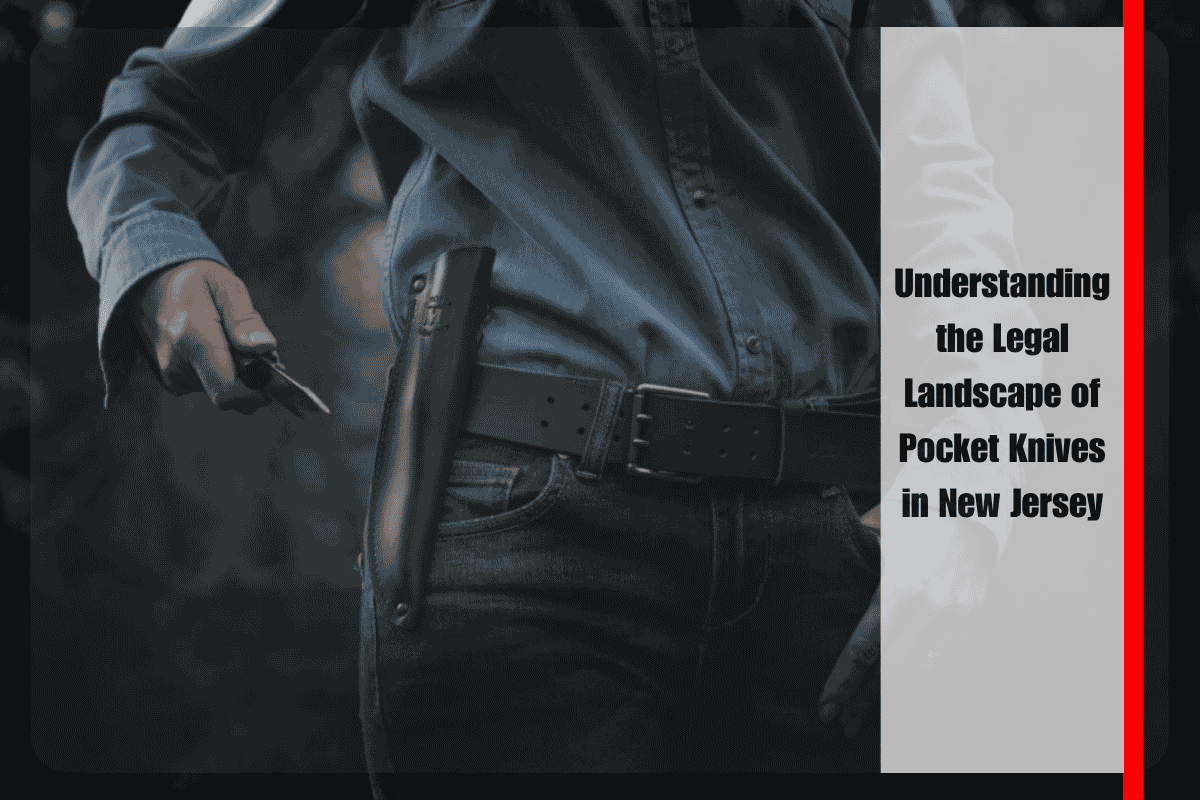Pocket knives are widely used tools in everyday life for tasks such as cutting, opening packages, and various other functions. However, when it comes to carrying a pocket knife, the legal implications in New Jersey can be complex. Understanding the state’s laws about pocket knives is essential to avoid potential legal trouble, especially since these laws vary by blade length, intent, and other factors.
In New Jersey, pocket knives fall under the general category of weapons, and the law treats the carrying of such knives with caution. The most important thing to note is that it is not automatically illegal to own or carry a pocket knife in New Jersey, but there are specific rules and regulations that govern how and where these knives can be carried.
Ownership of Pocket Knives in New Jersey
Owning a pocket knife in New Jersey is legal, and there are no laws that specifically prohibit their possession. However, possession of a pocket knife does not mean that carrying it in public is automatically legal. The laws governing the carrying of knives in New Jersey are stricter than the laws governing ownership. The state has guidelines about what types of knives can be legally carried and where they can be carried.
Carrying Pocket Knives in New Jersey
When it comes to carrying a pocket knife, New Jersey law is very specific. The state prohibits carrying any knife with the intention to use it as a weapon. Under New Jersey’s criminal code, carrying a pocket knife with a blade longer than four inches is illegal without a proper justification. This includes knives that are hidden or concealed.
Carrying a pocket knife without a good reason can lead to criminal charges, including charges for illegal weapons possession. In some cases, carrying a pocket knife may be considered a third-degree crime, particularly if the knife is carried with the intent to harm someone. Even if the knife is not used in a crime, simply carrying a large or concealed knife without a legitimate purpose may be grounds for arrest.
Concealed Carry and Intent
New Jersey is particularly strict about concealed carry. Concealing a pocket knife in a manner that hides it from view, even if the knife is not being carried with the intention of committing a crime, can lead to legal consequences. If a person is found carrying a concealed pocket knife without a proper permit or without a valid reason, they can face charges.
In addition, the intent behind carrying the knife plays a major role in determining whether the carrying is legal. If a person can demonstrate that they were carrying the knife for a legitimate purpose, such as for work, camping, or other everyday uses, they may avoid charges. However, if law enforcement believes the knife was being carried for the purpose of intimidation, self-defense, or as a weapon, the individual may be subject to legal penalties.
Exemptions and Permits
While New Jersey’s laws on pocket knives are strict, there are some exemptions for people who need to carry a knife for specific purposes. For example, certain individuals, such as law enforcement officers, military personnel, or others involved in security-related jobs, may be exempt from some of the regulations regarding knife possession and carrying. Additionally, there are some allowances for knives that are used in the course of a person’s employment, such as utility workers who may need larger blades for their jobs.
Furthermore, New Jersey has specific permitting systems for certain types of knives. In some cases, a person who wants to carry a pocket knife that exceeds four inches or a switchblade may need to apply for a permit to carry the knife legally. These permits are typically issued on a case-by-case basis and are not always easy to obtain.
Additional Considerations
In addition to the laws on concealed carry and intent, New Jersey also has laws that govern where you can carry knives. For example, knives are prohibited in certain public spaces, such as schools, government buildings, and airports. Carrying a pocket knife in one of these locations can lead to serious legal consequences. Similarly, individuals who have been convicted of certain crimes may not be permitted to carry knives under any circumstances.
While it is legal to own and use a pocket knife in New Jersey, the laws surrounding carrying these knives are strict. Pocket knives are treated as weapons, and carrying them, especially in a concealed manner or with a blade longer than four inches, can lead to criminal charges unless you have a valid reason or permit. It’s important for New Jersey residents to be aware of the specific regulations regarding knife possession and carrying to ensure they comply with the law and avoid unnecessary legal issues. If you are unsure about whether carrying a pocket knife is legal in a particular situation, it’s always advisable to seek legal advice or check local ordinances for further clarification.
Sources
[1] https://nobliecustomknives.com/us-knife-laws/new-jersey-knife-laws/
[2] https://www.starkeykelly.com/blog/2022/12/what-are-new-jerseys-laws-about-knives/
[3] https://www.akti.org/state-knife-laws/new-jersey/
[4] https://ravencresttactical.com/new-jersey-knife-laws/
[5] https://njdwiesq.com/criminal-possession-with-a-knife/












